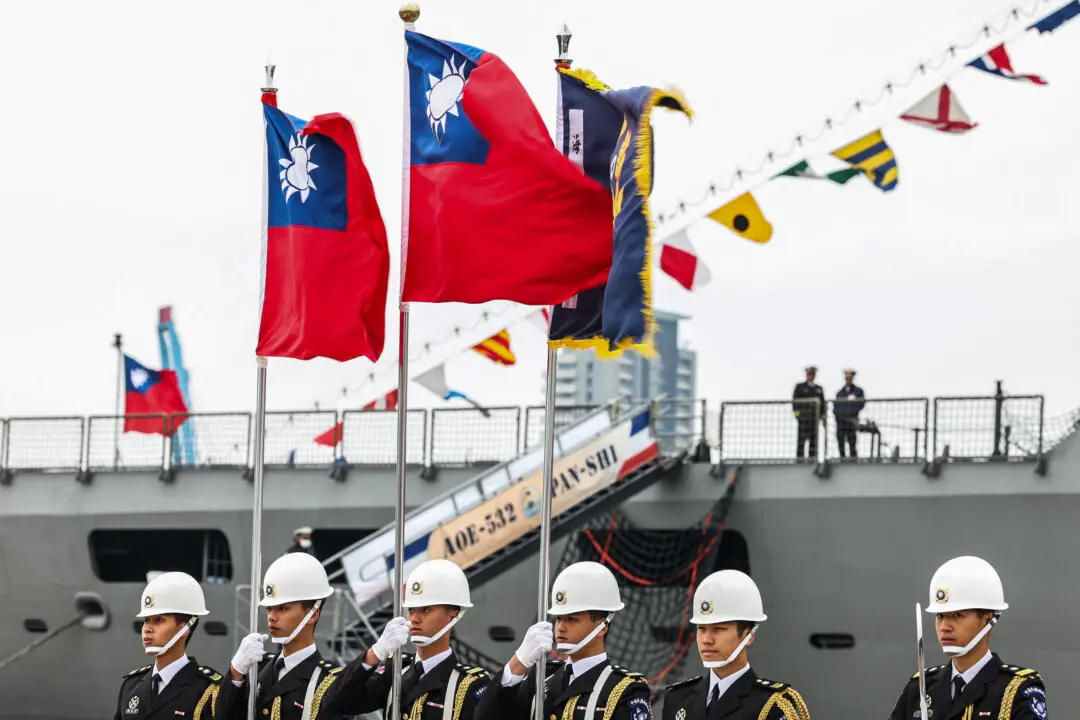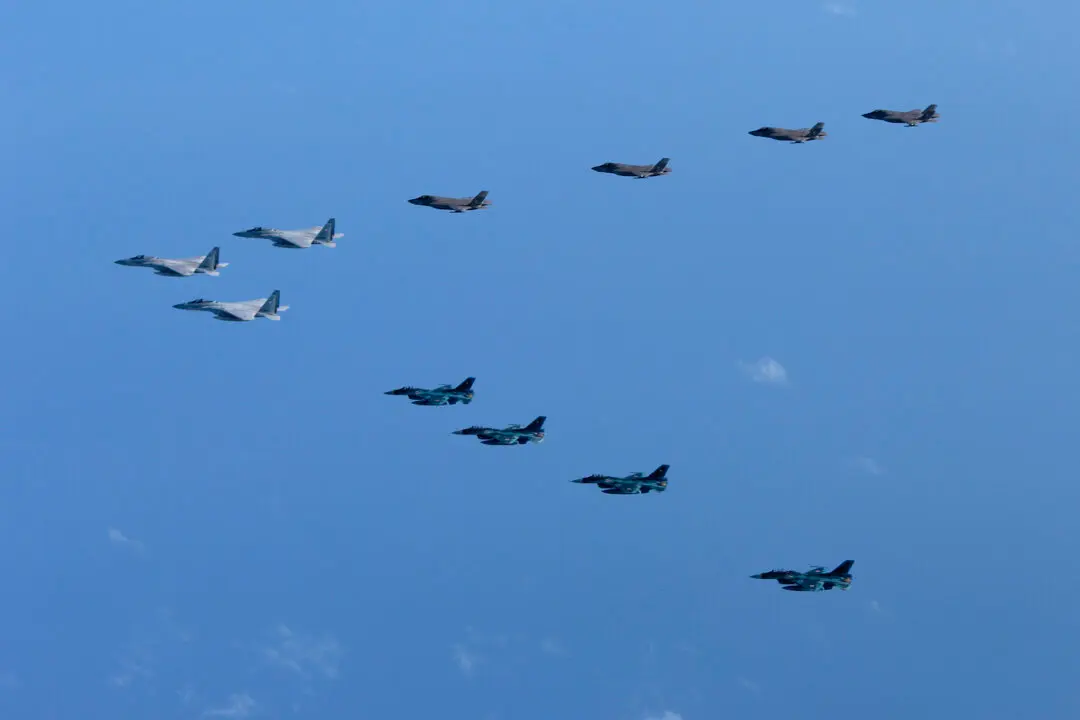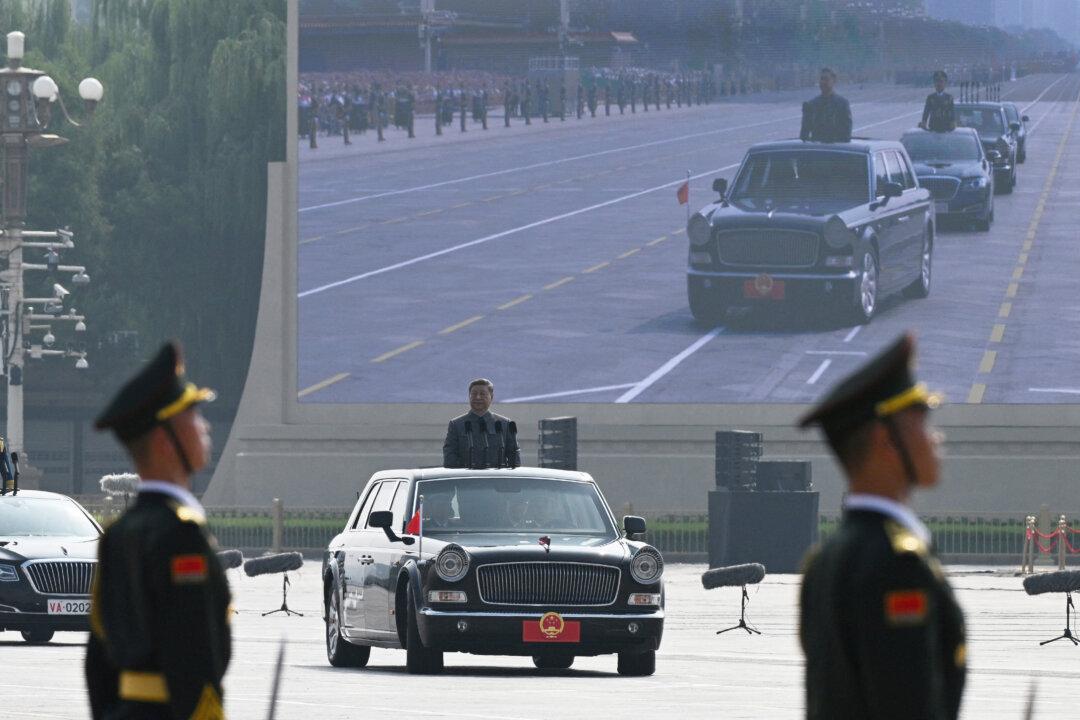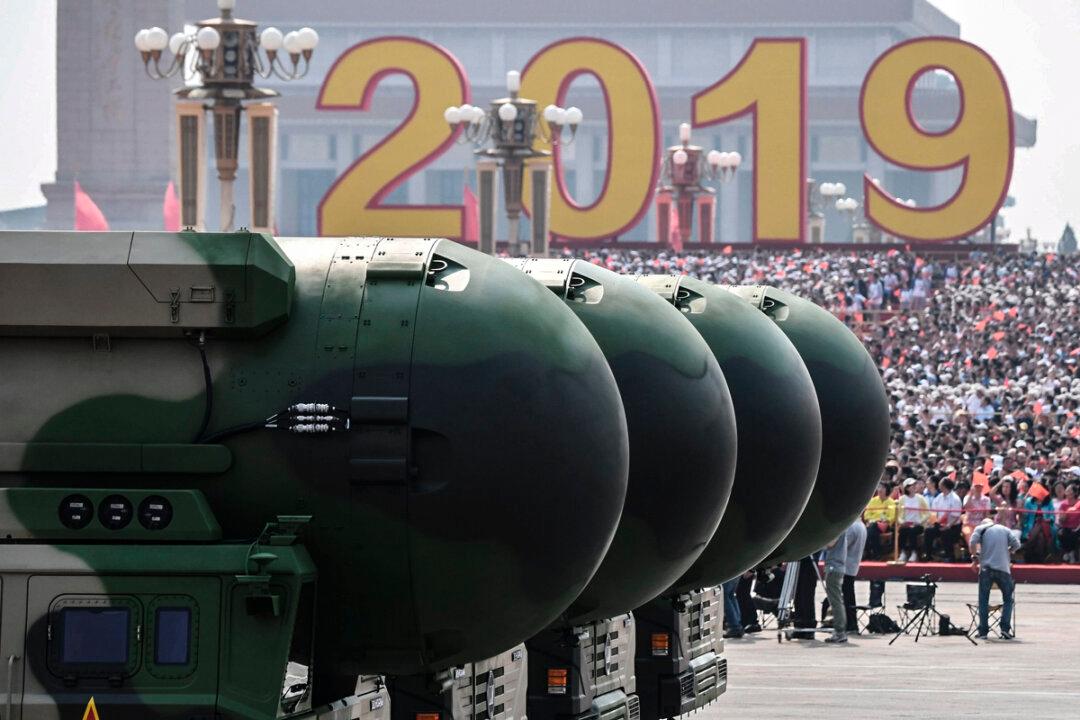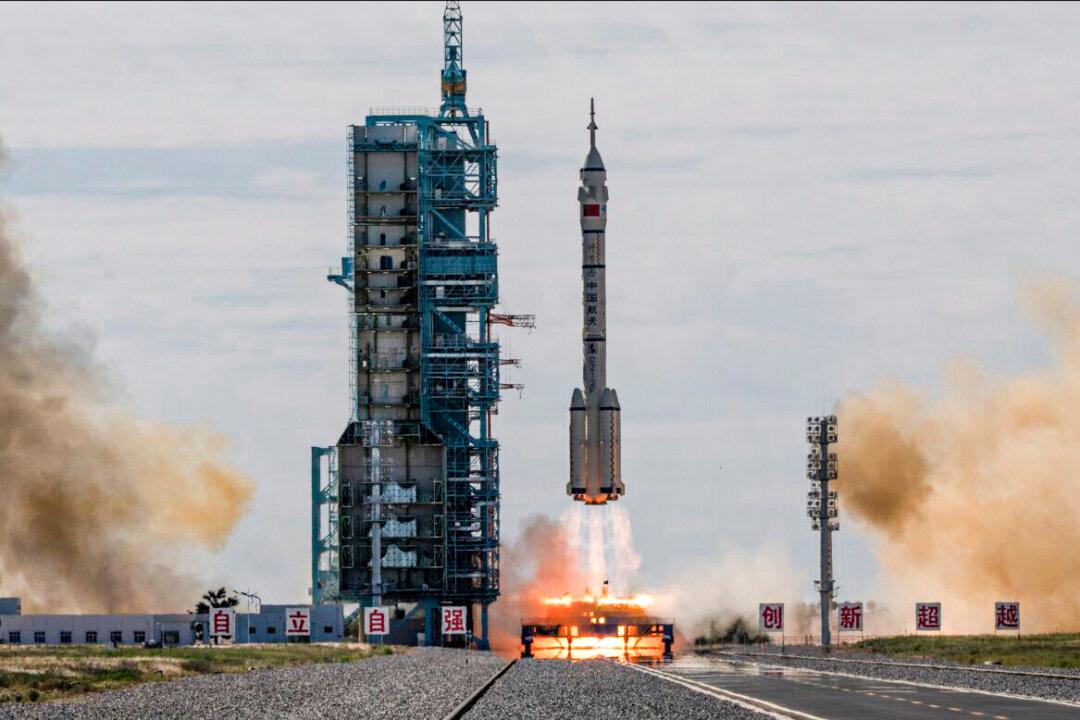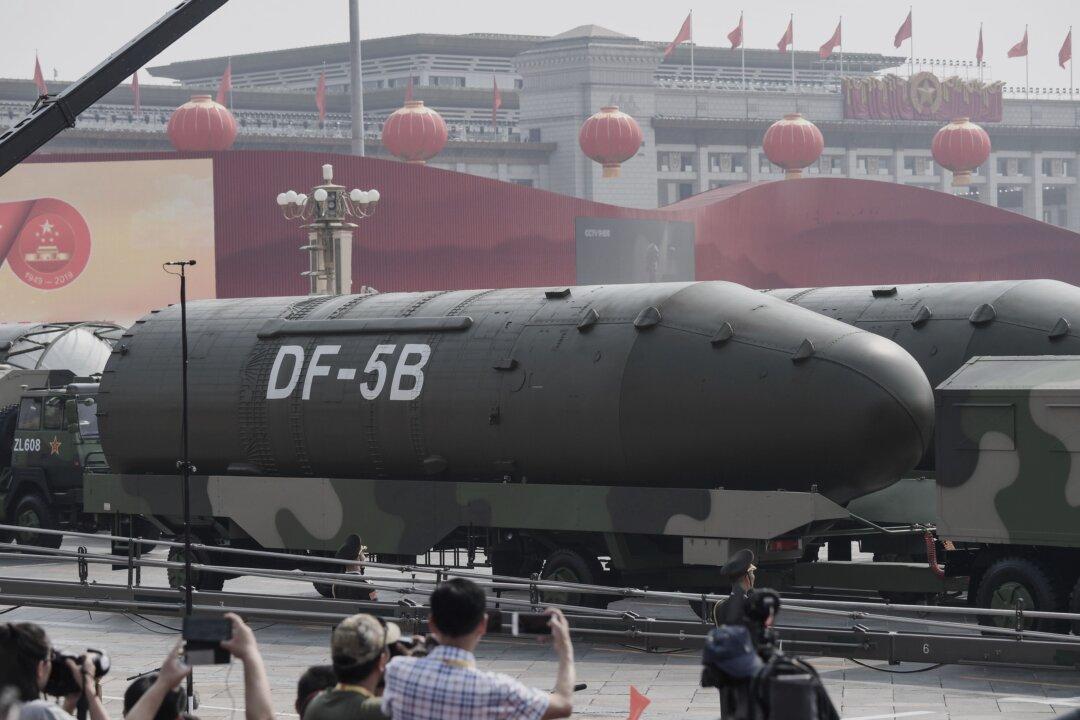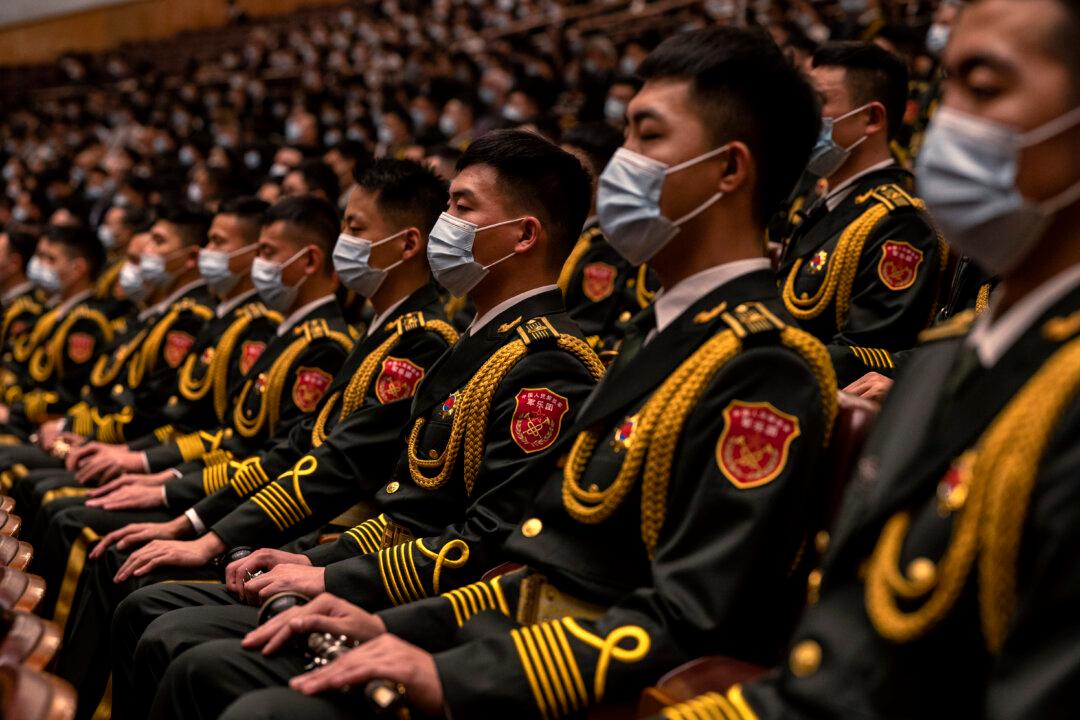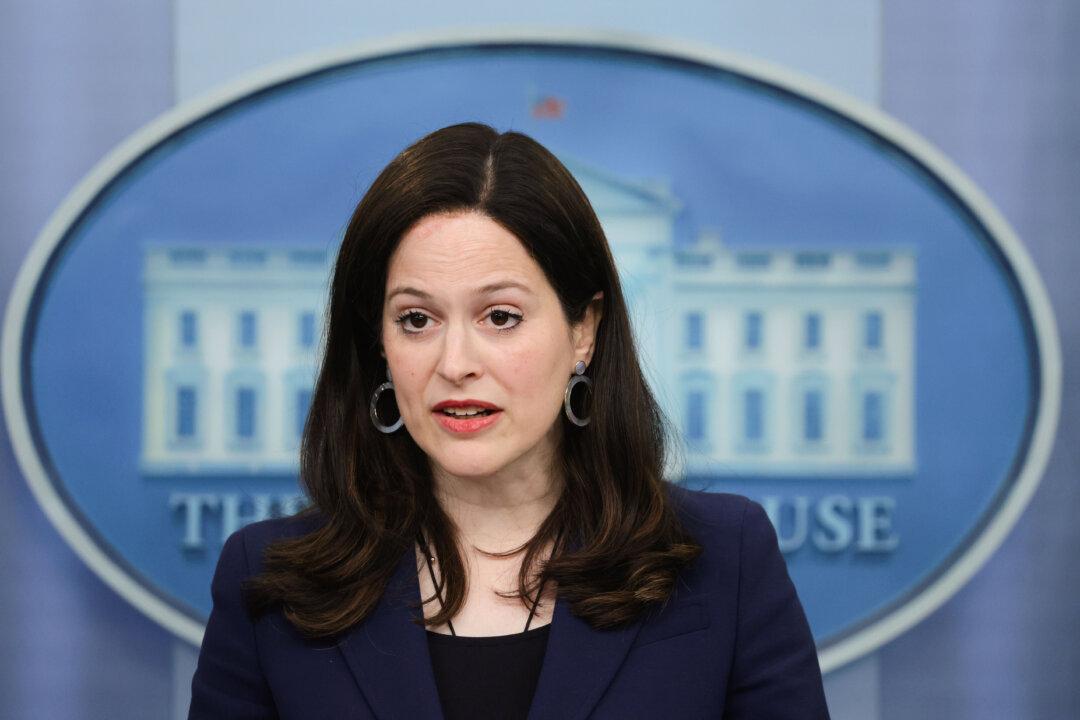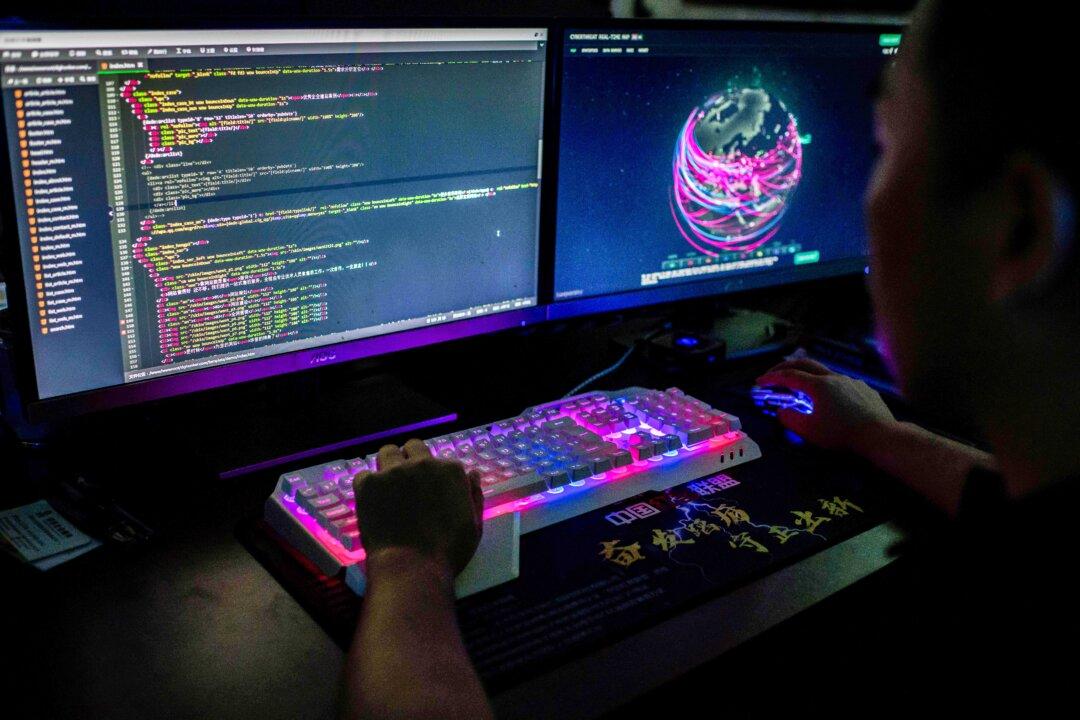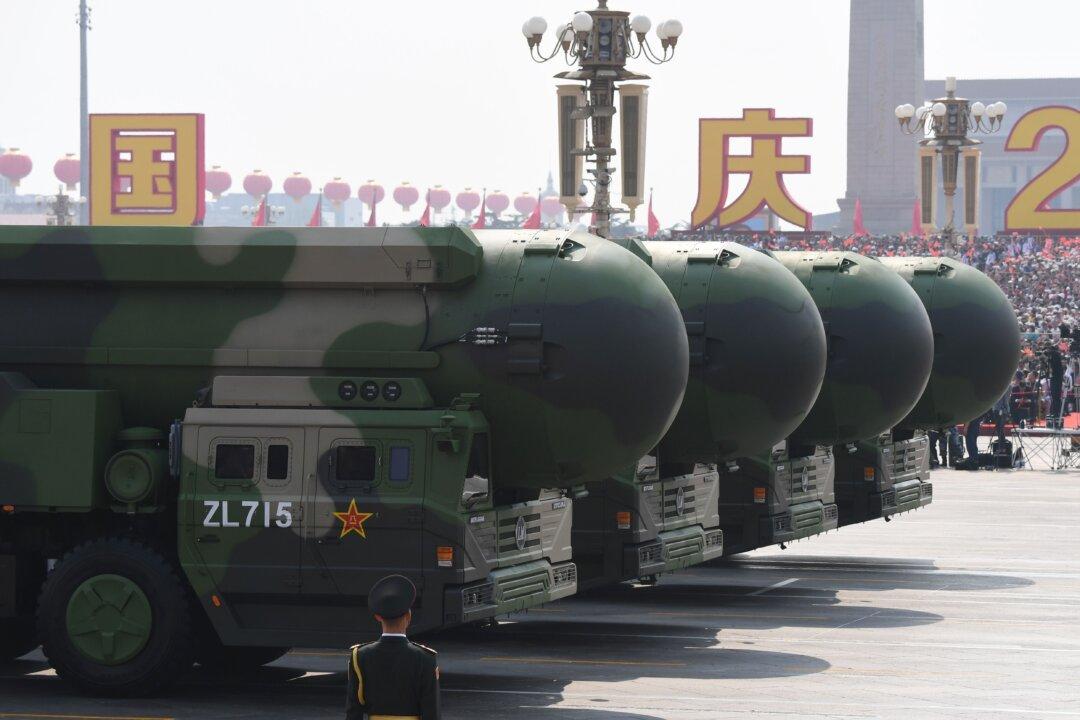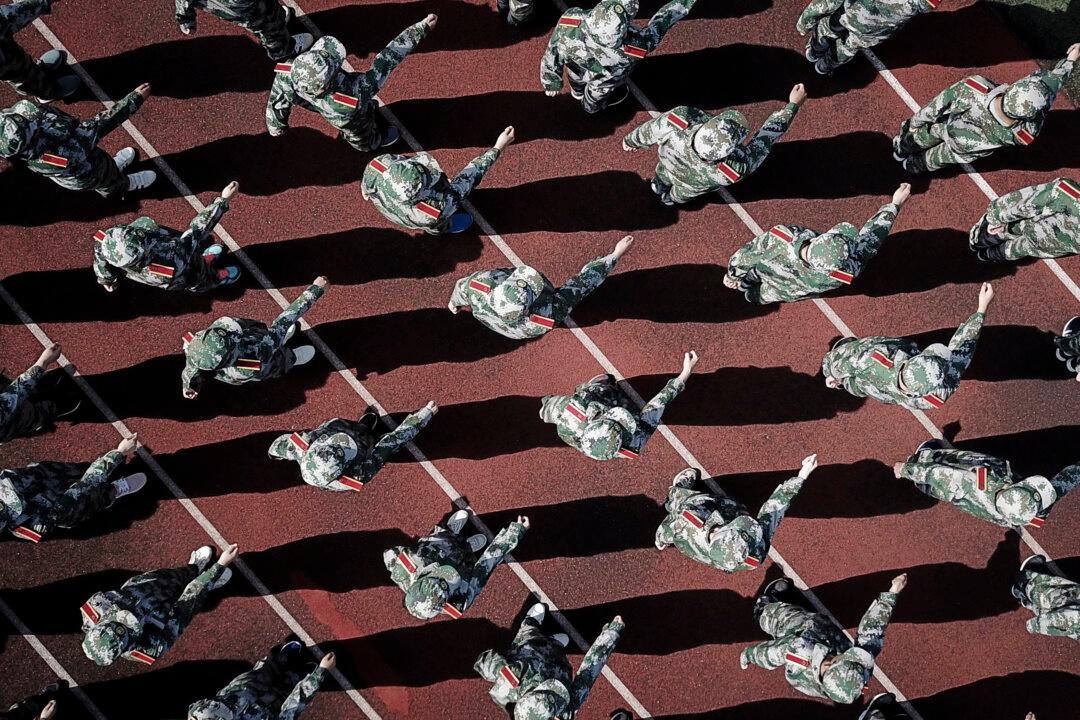Arms Race
Stay up-to-date on the latest news, developments, and breakthroughs in space exploration and technology, including the growing space competition
Arms Race | LATEST STORIES
How Trump’s China Pivot Turned Taiwan Into a US Strategic Priority: Miles Yu
Yu says Washington’s post-2017 security shift reframed Taiwan’s defense as a matter of American self-interest.
|
Japan Protests After Jets Targeted by China With Radar
Japan and Australia condemned the radar targeting as dangerous and destabilizing for the region, pointing to Beijing’s disregard for the rules-based order.
|
Why Drones Are Center of Potential US–China Warfare
Scale and speed—not a perfect design—will decide drone warfare, pushing Washington to cut red tape and ship autonomous fleets by the thousands, analysts say.
|
China’s Parade Reveals Limitations in Military Development: Analysts
Such a display of military power reaffirms that the CCP is the threat to world democracy and peace, analysts say.
|
Xi Oversees China’s Military Parade Alongside Putin, Kim
‘The people of Taiwan cherish peace, and Taiwan does not commemorate peace with the barrel of a gun,’ Taiwanese President Lai Ching-te said.
|
China’s Nuclear Weapons Buildup Driven by Unrestricted Warfare Doctrine, Experts Say
The regime’s rapid expansion of nuclear capabilities strengthens its political and psychological position against the United States and allies, analysts say.
|
Hoping for Military Edge, China Eyes Russia’s Ground-Effect Technology
Soviet-era ‘ekranoplan’ designs could aid Beijing in a maritime conflict, but the research comes with its difficulties, observers said.
|
China Growing Nuclear Stockpile at Fastest Rate, Says Report
The number of China’s nuclear warheads grew by 20 percent in the past year, according to SIPRI.
|
US Tested Technology to Warn When China Tracks US Satellites: Space Force
More than 490 of the CCP’s 970 satellites are intelligence-capable satellites, according to a professor of strategy at the U.S. Naval War College.
|
China Announces 7.2 Percent Increase in Military Spending
U.S. officials and defense analysts have long believed the communist regime’s reported budget captures only a fraction of its true spending on the armed forces.
|
China Replaces General in Charge of Ground Force’s Political Loyalty
Since last July, the CCP’s anti-corruption campaign has led to the downfall of more than a dozen high-ranking military officers and defense industry executives.
|
China-Linked Hackers Breached 8 US Telecom Companies, White House Says
The Chinese hacking campaign affected dozens of countries worldwide, an administration official said.
|
FBI, NSA Ask US Telecom Companies to Boost Security Following Chinese Hacking Incident
The latest breach ‘will go down as maybe one of the most significant cyberattacks’ the United States has ever faced, Sen. Mark Warner (D-Va.) said.
|
China’s ICBM Launch Tested Both Missile Capability and Geopolitical Waters, Analysts Say
September’s launch of a long-range ICBM in the Pacific—China’s first such test in decades—evaluated the missile’s capabilities and sent a political message.
|
China’s Diplomatic Ally Kiribati Criticizes Beijing’s Intercontinental Ballistic Missile Test
‘Kiribati does not welcome China’s recent ICBM test,’ the island nation’s Presidential Office said.
|
China Says Its Coast Guard Entered Arctic for 1st Time in Patrols With Russia
‘This recent activity demonstrates the increased interest in the Arctic by our strategic competitors,’ a senior U.S. military official said.
|
CCP Develops AI Weapons, Ignoring Global Risks
The development of AI weapons may be equivalent to the nuclear revolution, according to Bradley Thayer, a senior fellow at the Center for Security Policy.
|
China’s New Generation J-35 Fighter Is Far Inferior to F-35: Analysts
“The CCP often uses reverse engineering, and their innovation is limited,” a Taiwanese military expert said.
|
US Grapples With AI Policy As China Threat Looms
Communist China is pushing forward in military AI development as the United States has yet to adopt a whole-of-government policy framework for AI.
|
How Trump’s China Pivot Turned Taiwan Into a US Strategic Priority: Miles Yu
Yu says Washington’s post-2017 security shift reframed Taiwan’s defense as a matter of American self-interest.
|
Japan Protests After Jets Targeted by China With Radar
Japan and Australia condemned the radar targeting as dangerous and destabilizing for the region, pointing to Beijing’s disregard for the rules-based order.
|
Why Drones Are Center of Potential US–China Warfare
Scale and speed—not a perfect design—will decide drone warfare, pushing Washington to cut red tape and ship autonomous fleets by the thousands, analysts say.
|
China’s Parade Reveals Limitations in Military Development: Analysts
Such a display of military power reaffirms that the CCP is the threat to world democracy and peace, analysts say.
|
Xi Oversees China’s Military Parade Alongside Putin, Kim
‘The people of Taiwan cherish peace, and Taiwan does not commemorate peace with the barrel of a gun,’ Taiwanese President Lai Ching-te said.
|
China’s Nuclear Weapons Buildup Driven by Unrestricted Warfare Doctrine, Experts Say
The regime’s rapid expansion of nuclear capabilities strengthens its political and psychological position against the United States and allies, analysts say.
|
Hoping for Military Edge, China Eyes Russia’s Ground-Effect Technology
Soviet-era ‘ekranoplan’ designs could aid Beijing in a maritime conflict, but the research comes with its difficulties, observers said.
|
China Growing Nuclear Stockpile at Fastest Rate, Says Report
The number of China’s nuclear warheads grew by 20 percent in the past year, according to SIPRI.
|
US Tested Technology to Warn When China Tracks US Satellites: Space Force
More than 490 of the CCP’s 970 satellites are intelligence-capable satellites, according to a professor of strategy at the U.S. Naval War College.
|
China Announces 7.2 Percent Increase in Military Spending
U.S. officials and defense analysts have long believed the communist regime’s reported budget captures only a fraction of its true spending on the armed forces.
|
China Replaces General in Charge of Ground Force’s Political Loyalty
Since last July, the CCP’s anti-corruption campaign has led to the downfall of more than a dozen high-ranking military officers and defense industry executives.
|
China-Linked Hackers Breached 8 US Telecom Companies, White House Says
The Chinese hacking campaign affected dozens of countries worldwide, an administration official said.
|
FBI, NSA Ask US Telecom Companies to Boost Security Following Chinese Hacking Incident
The latest breach ‘will go down as maybe one of the most significant cyberattacks’ the United States has ever faced, Sen. Mark Warner (D-Va.) said.
|
China’s ICBM Launch Tested Both Missile Capability and Geopolitical Waters, Analysts Say
September’s launch of a long-range ICBM in the Pacific—China’s first such test in decades—evaluated the missile’s capabilities and sent a political message.
|
China’s Diplomatic Ally Kiribati Criticizes Beijing’s Intercontinental Ballistic Missile Test
‘Kiribati does not welcome China’s recent ICBM test,’ the island nation’s Presidential Office said.
|
China Says Its Coast Guard Entered Arctic for 1st Time in Patrols With Russia
‘This recent activity demonstrates the increased interest in the Arctic by our strategic competitors,’ a senior U.S. military official said.
|
CCP Develops AI Weapons, Ignoring Global Risks
The development of AI weapons may be equivalent to the nuclear revolution, according to Bradley Thayer, a senior fellow at the Center for Security Policy.
|
China’s New Generation J-35 Fighter Is Far Inferior to F-35: Analysts
“The CCP often uses reverse engineering, and their innovation is limited,” a Taiwanese military expert said.
|
US Grapples With AI Policy As China Threat Looms
Communist China is pushing forward in military AI development as the United States has yet to adopt a whole-of-government policy framework for AI.
|

